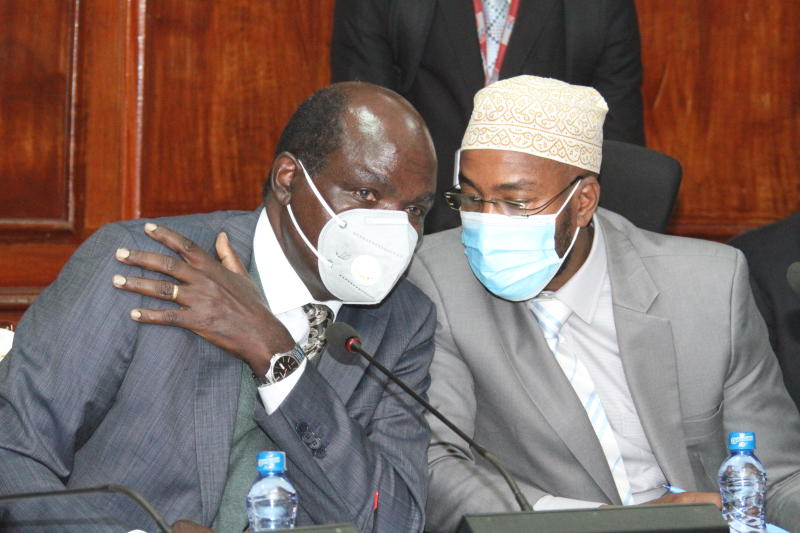×
The Standard e-Paper
Fearless, Trusted News

IEBC Chair Wafula Chebukati (left) flanked by CEO Marjan Hussein before the National Assembly Committee on Delegated Legislation at Parliament, Nairobi, to shed light on the draft election campaign financing regulations on Wednesday, August 11, 2021. [David Njaaga, Standard]
Election campaign spending has been growing exponentially since the 2013 General Election, which was the first election following the promulgation of the 2010 Constitution.